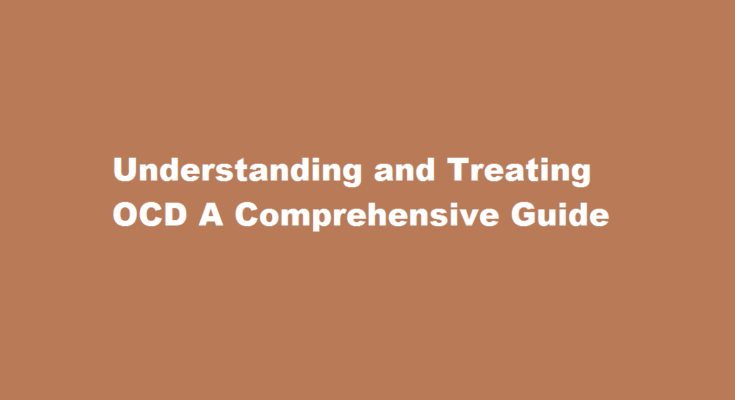Introduction
Obsessive-Compulsive Disorder (OCD) is a mental health condition that affects millions of individuals worldwide. Characterized by intrusive thoughts (obsessions) and repetitive behaviors (compulsions), OCD can significantly impact a person’s quality of life. However, with the right approach, treatment, and support, individuals with OCD can manage their symptoms effectively. In this article, we will explore various treatment options and strategies to help OCD patients lead fulfilling lives.
Understanding OCD
To effectively treat OCD, it’s crucial to understand its nature and underlying mechanisms. OCD involves a complex interaction between genetics, brain chemistry, and environmental factors. People with OCD often experience intense anxiety and distress caused by intrusive thoughts, which are repetitive, unwanted, and intrusive. These thoughts can be accompanied by compulsions, which are ritualistic behaviors aimed at reducing anxiety or preventing perceived harm.
Professional Diagnosis and Evaluation
If you suspect that you or someone you know may have OCD, it is essential to seek professional help. A mental health professional, such as a psychiatrist or psychologist, can provide an accurate diagnosis. They will conduct a thorough evaluation, which may include interviews, questionnaires, and observations of the patient’s thoughts and behaviors. This evaluation is crucial in determining the severity of the condition and developing an appropriate treatment plan.
Cognitive-Behavioral Therapy (CBT)
Cognitive-Behavioral Therapy, specifically Exposure and Response Prevention (ERP), is considered the most effective treatment for OCD. ERP involves gradually exposing the patient to anxiety-inducing situations or triggers while resisting the urge to engage in compulsive behaviors. Through repeated exposure, patients learn to tolerate anxiety and realize that their feared outcomes do not materialize. CBT also involves identifying and challenging distorted thoughts and beliefs that contribute to OCD symptoms.
Medication Options
In conjunction with therapy, medication can be beneficial for individuals with OCD. Selective Serotonin Reuptake Inhibitors (SSRIs), such as fluoxetine and sertraline, are commonly prescribed to help regulate serotonin levels in the brain. These medications can help reduce anxiety and obsessions, making it easier for patients to engage in therapy and manage their symptoms. It’s important to consult with a psychiatrist to determine the appropriate medication and dosage.
Lifestyle Changes and Self-Care
In addition to therapy and medication, incorporating lifestyle changes and self-care practices can further support individuals with OCD. Regular exercise, a healthy diet, and sufficient sleep contribute to overall well-being and can help manage anxiety. Stress reduction techniques, such as meditation, deep breathing exercises, and mindfulness, can also be beneficial. Engaging in activities that bring joy and relaxation can provide a healthy distraction from obsessive thoughts.
Building a Supportive Network
Having a strong support system is invaluable for individuals with OCD. Friends and family who understand the nature of OCD can provide empathy, encouragement, and understanding. Support groups and online communities can connect individuals with others who are going through similar experiences. Sharing experiences and learning from others can provide validation and offer coping strategies.
Patience and Persistence
Recovering from OCD takes time and effort. It’s crucial for patients and their loved ones to be patient and persistent throughout the treatment process. Set realistic expectations and celebrate even small victories. Understand that setbacks can occur but do not signify failure. Continue seeking professional help, practicing therapy techniques, and implementing self-care strategies.
Frequently Asked Questions
Which is the most important question to ask a patient being treated with OCD?
Do you have frequent unwanted thoughts that seem uncontrollable? Do you try to get rid of these thoughts and, if so, what do you do? Do you have rituals or repetitive behaviors that take a lot of time in a day?
How successful is treatment for OCD?
About 7 out of 10 people with OCD will benefit from either medication or Exposure and Response Prevention (ERP). For the people who benefit from medication, they usually see their OCD symptoms reduced by 40-60%. For medications to work, they must be taken regularly and as directed by their doctor.
Conclusion
While OCD can be challenging, it is a treatable condition. Through a combination of therapy, medication, lifestyle changes, and support, individuals with OCD can learn to manage their symptoms effectively and lead fulfilling lives. Seek professional help, remain committed to treatment, and remember that recovery is possible.
Read Also : Understanding and Treating Obsessive-Compulsive Disorder (OCD)



